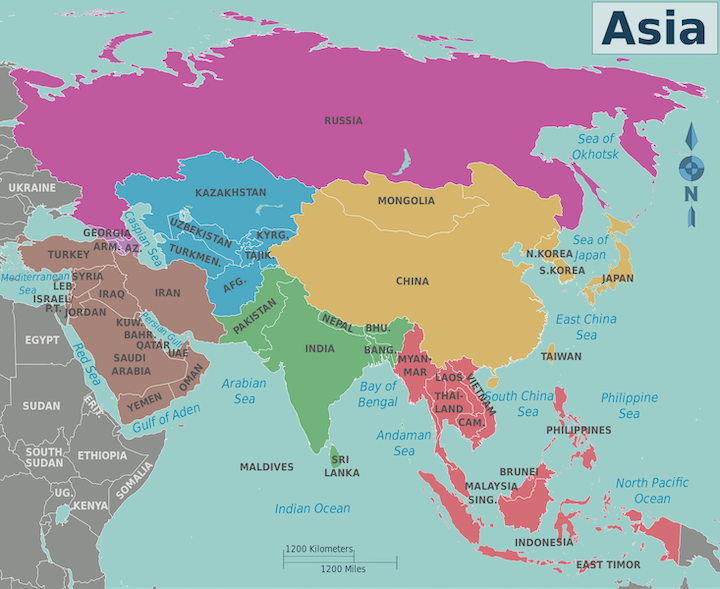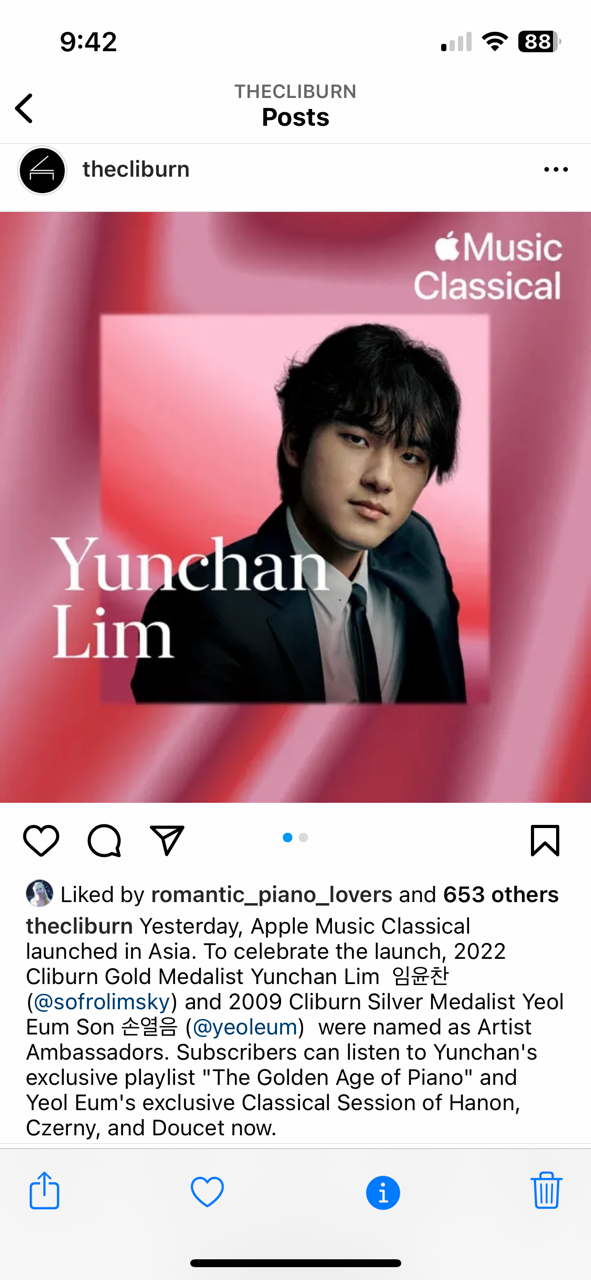The Well-Tempered Ear
Classical music: Which political campaigns have used classical music?
2 Comments
By Jacob Stockinger
In the past, the music that political campaigns used was often jingles that reminded one of Madison Avenue advertising, even when they were composed by Broadway song master Irving Berlin.
These days, it seems to The Ear that most political campaigns use rock, pop or country music.
Sometimes folk music.
Never jazz.
And, one supposes, you will never hear the blues since that would be a pretty downbeat message for politicians.
But leave it to our friends at WQXR-FM, the famed classical music radio station in New York City, to offer some samples of political campaign music, including some that used classical music.
Donald Trump (below), the current Republican nominee for president, has tried to use the famous opera aria “Nessum dorma” (None Shall Sleep) from “Turandot” by Giacomo Puccini.
Fittingly, in the opera the moving and beautiful aria is sung by a prince to woo a Chinese tyrant or despot.
The Ear especially loved the way it was used so appropriately during the carpet bombing of Cambodia by the U.S. in the movie “The Killing Fields.”
Trump used one of the best versions available – sung by Luciano Pavarotti, one of which has 38 million hits and which you can hear in a YouTube video at the bottom.
But the Pavarotti estate refused to grant him permission to use it and asked him to cease and desist. Good for them.
Now Trump uses something in the public domain: the Overture to the opera “The Thieving Magpie” by Giachino Rossini.
Anyway, here is a link to the story:
http://www.wqxr.org/#!/story/6-us-political-campaigns-set-to-classical-music/
Tags: advertising, American, Arts, blues, bombing, Broadway, Cambodia, campaign, China, choral music, Classical music, country, Donald Trump, folk, Folk music, Irving Berlin, Jacob Stockinger, Jazz, Luciano Pavarotti, Madison Avenue, Music, Nessun Dorma, New York City, nominee, opera, Orchestra, Overture, Pavarotti, political, Politics, pop, President, Puccini, Radio, Republican, Rock, Rossini, singer, song, The Killing Fields, Thieving Magpie, Turandot, U.S., United States, University of Wisconsin-Madison School of Music, University of Wisconsin–Madison, US, vocal music, WQXR-FM, YouTube
Classical music: Is Beethoven still relevant and our political contemporary with his opera “Fidelio”?
3 Comments
By Jacob Stockinger
You might recall that Ludwig van Beethoven (below) composed only one opera.
It is “Fidelio,” and it reflected his Enlightenment-era political ideas about equality and democracy –- despite the composer’s own financial reliance on patronage by aristocrats and royals.
And you may recall that the Madison Opera has slated “Fidelio” for a production this coming season in Overture Hall on Friday night, Nov. 21, and Sunday afternoon, Nov. 23.
The production comes during a time of great political unrest and perhaps upheaval at home, with crucial national and state elections, and especially overseas and in foreign affairs with Iraq, Syria, Ukraine, Africa’s Ebola strife and many other hot spots showing no sign of letting up.
So will the local production of “Fidelio” be more or less a traditional one? Or will the Madison Opera’s general director Kathryn Smith and its artistic director, John DeMain, who is also the music director of the Madison Symphony Orchestra, have other ideas about how to tweak the opera and recast it for modern or contemporary relevance?
It will be interesting to see, although The Ear understands that the production will be traditional.
Here is a link to the Madison Opera’s website:
http://madisonopera.org/performances-2014-2015/
Currently, the acclaimed Santa Fe Opera is staging a controversial new version of “Fidelio”(below), created by director Stephen Wadsworth, that takes place in the Nazi death camp Bergen-Belsen. Sounds very Peter Sellars-like. (You can hear the moving music from the Prisoners’ Chorus at the bottom in a YouTube video.)
Corinna da Fonseca-Wollheim, of The New York Times, did not like it and, in fact, said it offended her because it belittled the Holocaust. She also complained that the roles in the actual text did not match the roles that the new staging created. She saw the production as too inconsistent.
Her larger complaint seems to reflect the notion that after the Holocaust, writing poetry and creating art is impossible, that beauty has been ruined.
It is an ambitious, lofty and tempting thought, but one that is clearly not true. In fact, it is downright wrong. Great suffering and art are old pals. Sometimes art takes you away from suffering; sometimes it takes you deeper into it. It depends on the work and on the performers. But we need both.
Anyway, here is the review from the Times as well as another one with a different take. Read them for yourself. Then decide and make up your own mind. It sure sounds like a concept worth pursuing, even if flawed, to The Ear.
Critic Heidi Waleson, of The Wall Street Journal, on the other hand, praised the production:
http://online.wsj.com/articles/opera-review-santa-fe-opera-1407191039
Be sure to tell The Ear, and other readers, including members of the Madison Opera, if you have ever seen an updated version of “Fidelio” and what you thought of it.
Where do you think “Fidelio could be recast to best advantage The Holocaust? The Spanish Inquisition? The Soviet Gulag and Great Terror? The Killing Fields of Cambodia? The Rwandan genocide? Abu Graib prison in Iraq? A CIA black site torture prison in Egypt? The Chinese Cultural Revolution?
Or, given the fact that the United States has the highest incarceration rate in the world, how about a Supermax prison in Wisconsin?
You get the idea.
Go wild with your imagination, and then write in.
The Ear wants to hear.
Tags: 18th century, Abu Graib, Africa, Arts, Beethoven, Bergen-Belsen, black site, Cambodia, China, choral music, CIA, Classical music, concentration camp, Cultural Revolution, death camp, Ebola, Egypt, Enlightenment, Fidelio, genocide, Germany, Great Terror, Gulag, Hitler, Holocaust, incarceration, Iraq, Jacob Stockinger, John DeMain, Ludwig van Beethoven, Madison, Madison Opera, Madison Symphony Orchestra, Nazi, New York Times, opera, Orchestra, Overture Center, Peter Sellars, prison, prisoner, Rwanda, Santa Fe Opera, Spanish Inquisition, Stephen Wadsworth, Supermax, Syria, The Killing Fields, torture, Ukraine, United States, virus, Wall Street Journal, YouTube






